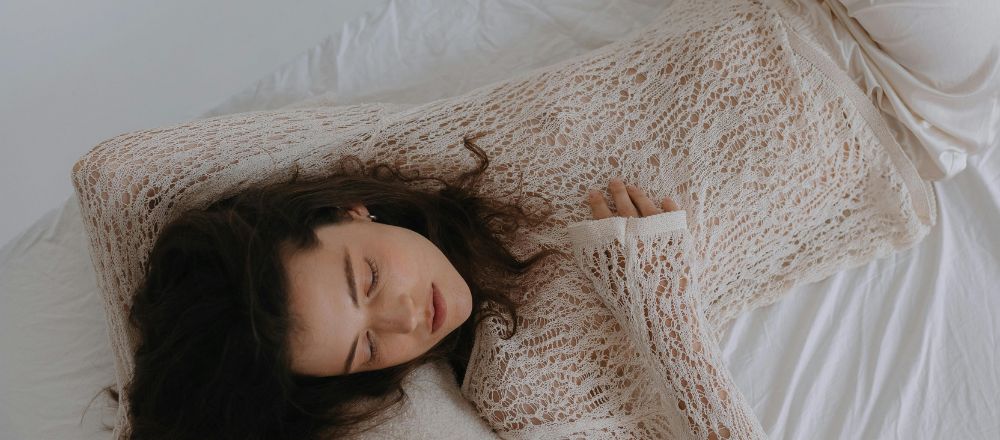What to Know About Sleep Myoclonus
- Posted On: November 13, 2024
- Posted By: admin

Sudden, involuntary muscular jerks that happen right before someone falls asleep are the hallmarks of sleep myoclonus, sometimes referred to as nocturnal myoclonus. The person may occasionally be startled or momentarily awakened by these spasms. From infrequent, moderate twitches to regular, severe spasms that interfere with sleep, sleep myoclonus can range in intensity. Although sleep myoclonus is mostly benign, it can occasionally be a sign of a neurological disorder that needs more research.
What Is Sleep Myoclonus?
Sleep myoclonus is characterized by abrupt, fleeting contractions of the muscles that often occur during the first stage of sleep, known as NREM stage 1 (non-rapid eye movement sleep). The body begins to relax and the brain slows down during this phase, which is a transition between awake and sleep. Often felt in the arms or legs, the muscular spasms are referred to as “hypnic jerks” or “sleep starts.” Although these motions are often quick and fleeting, they can happen frequently and may make some people uncomfortable or trigger a startle reaction.
Common Symptoms of Sleep Myoclonus
Sleep myoclonus symptoms often include:
-
Unexpected Muscle Jerks:
These are quick, uncontrollable motions that mostly impact the legs. They generally happen at the start of sleep.
-
Sleep Interrupted:
In more extreme situations, myoclonic jerks may cause the person to wake up and disrupt their sleep.
-
Accompanying Sensation:
Muscle jerks can be caused by accompanying sensations, such as a feeling of falling.
-
Brief Arousal:
A brief awakening may be brought on by the jerks, during which a person may feel awake but then swiftly return to sleep. Frequent or severe jerks that interfere with sleep can cause sleep deprivation, which can result in daily weariness and irritation, even if sleep myoclonus itself is typically benign.
Causes of Sleep Myoclonus
Although the precise origin of sleep myoclonus is yet unknown, the shift from awake to sleep is thought to be a contributing factor. Brain activity changes at this time, and it’s believed that the brain may give the muscles conflicting messages, which might result in involuntary movements. The following are some possible causes of sleep myoclonus:
-
Stress and Anxiety:
Sleep disorders, such as myoclonic jerks, can be exacerbated by high amounts of stress.
-
Fatigue:
The mere lack of sleep might make hypnic jerks more likely to occur while you’re asleep.
-
Neurological illnesses:
Parkinson’s disease, epilepsy, and restless legs syndrome are among the illnesses that sleep myoclonus is occasionally linked to.
-
Use of Stimulants:
Using stimulants like caffeine, nicotine, or others can make muscles more excitable, which increases the likelihood of jerks.
-
Hereditary Factors:
Although there is currently little study on this topic, several studies point to a hereditary component.
Diagnosis and Treatment of Sleep Myoclonus
In order to monitor sleep patterns and find any underlying disorders, a medical history review and, in some situations, a sleep study—also referred to as polysomnography—are usually required for diagnosis. To rule out neurological disorders, a neurologist could suggest further testing if symptoms are persistent and bothersome.
The majority of people don’t need therapy for sleep myoclonus. There are a few choices, though, if the jerks are interfering with your sleep or making you stressed:
-
Lifestyle Changes:
You may lessen jerks by cutting back on coffee, keeping a regular sleep schedule, and developing a calming nighttime ritual.
-
Stress Management:
Stress management techniques that can be used before bed include deep breathing, meditation, and mild stretching.
-
Medication:
Although this is uncommon and usually saved for situations connected to neurological diseases, in extreme circumstances, prescriptions for drugs such as clonazepam or anticonvulsants may be issued.
Conclusion
Sleep myoclonus happens often and is usually not harmful. Even though sporadic sleep beginnings might be shocking, they almost seldom signify major health problems. People may frequently lessen the effects of sleep myoclonus by implementing appropriate sleep practices, controlling their stress, and avoiding stimulants just before bed. A healthcare professional can provide direction and assistance to individuals who suffer from more severe symptoms in order to guarantee peaceful, undisturbed sleep.